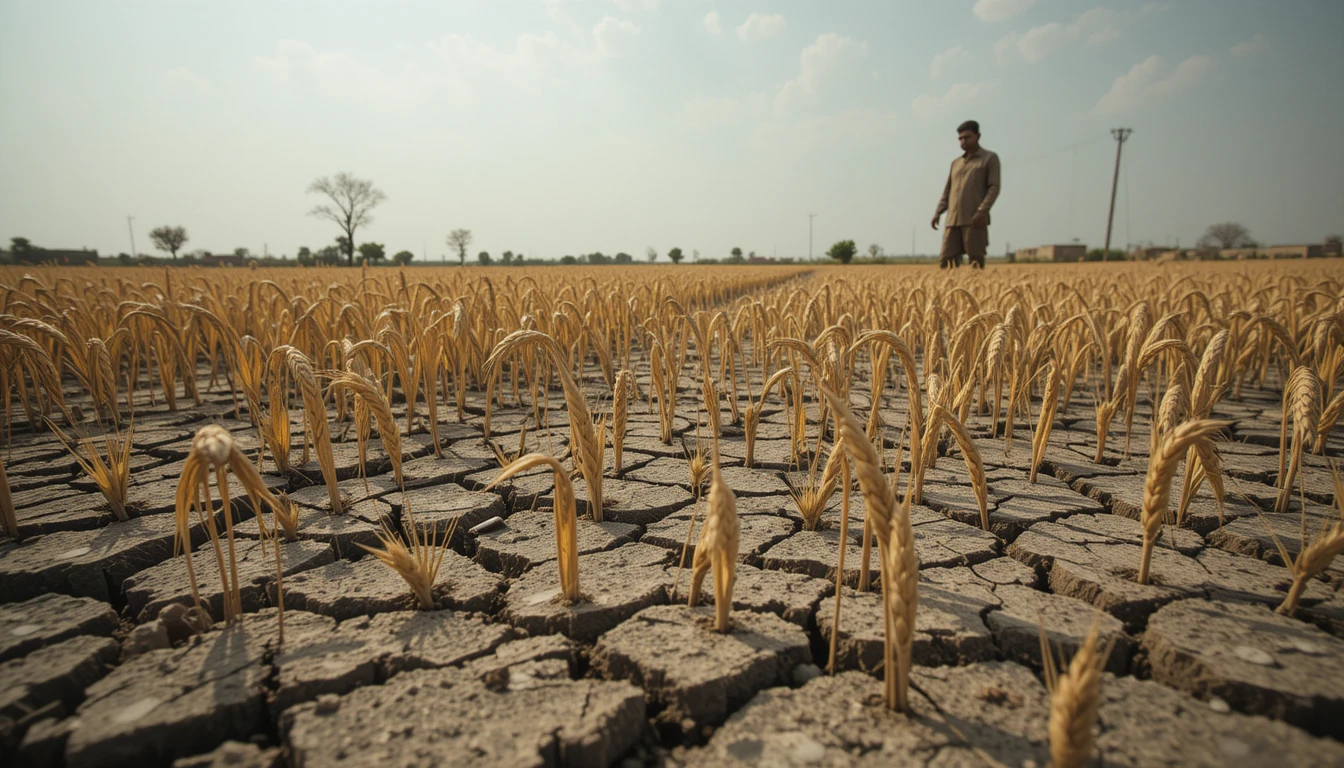Erratic government interventions, deregulation without safety nets, and severe water shortages threaten food security and farmer livelihoods across Pakistan.
Key Takeaways:
i) Pakistan is facing another wheat crisis due to a combination of prolonged dry spells causing severe water shortages and inconsistent government policies regarding pricing and procurement.
ii) The deregulation of the wheat market without adequate safety nets for farmers has diminished their incentives to grow wheat, leading to potential domestic shortages and increased import bills.
iii) Restrictions on inter-provincial wheat movement and delays in government procurement further exacerbate the crisis by preventing farmers from accessing competitive markets and receiving fair prices.
Money Matters Monitoring – A recent analysis published by The Express Tribune titled “Why wheat is in crisis again” highlights the persistent challenges within Pakistan’s wheat sector, threatening both the national economy and the livelihoods of farmers. The article points to a confluence of factors, primarily erratic weather patterns and unstable government policies, as the root causes of the recurring crises. The author states, “[O]ne of the primary reasons behind this shortfall is the prolonged dry spell that has led to water shortages in both rain-fed and irrigated areas.”
The analysis elaborates on how the lack of consistent government support, particularly concerning wheat pricing and procurement, has eroded farmers’ trust and profitability. In 2023, a support price offered an 18% profit margin, but the absence of such a guarantee this year has left many farmers in a precarious situation. According to the article, “[A]s a result of these developments, the incentives for farmers to grow wheat are diminishing, ultimately leading to domestic shortage, high bread prices and increased import bills.”
Furthermore, the piece underscores the detrimental impact of provincial restrictions on wheat movement, which prevent farmers from selling their produce in more competitive markets. The author notes, “Moreover, provincial governments also place restrictions on the free movement of wheat to achieve procurement targets. As a result, farmers cannot access competitive markets and thus are further discouraged from growing wheat.” Delays in government procurement processes compound these issues, often forcing farmers to sell their harvests to middlemen at significantly lower prices.
The United States Department of Agriculture (USDA) recently issued a warning, projecting that Pakistan may need to import up to 1.7 million tons of wheat due to a significant drop in domestic production. This decline is attributed to a reduction in cultivation areas and the unusually dry weather conditions experienced since October 2024. Reports indicate that rainfall remained below average during the growing season, coupled with significantly higher than normal temperatures. The low levels in major water reservoirs like Tarbela and Mangla are exacerbating the water scarcity, crucial for the Rabi (winter) wheat crop.
Economists have also pointed out that the government’s withdrawal from the wheat market, while potentially a sound long-term strategy, was poorly executed, leaving small and medium-sized farmers vulnerable. The lack of a direct payment system further empowers middlemen and millers, who can manipulate prices to their advantage.
In conclusion, the recurring wheat crises in Pakistan reflect systemic issues ranging from climate vulnerability and inadequate water infrastructure to inconsistent government policies and a poorly managed transition in market deregulation. Addressing these multifaceted challenges is crucial to ensuring food security, stabilizing the economy, and supporting the agricultural sector.




